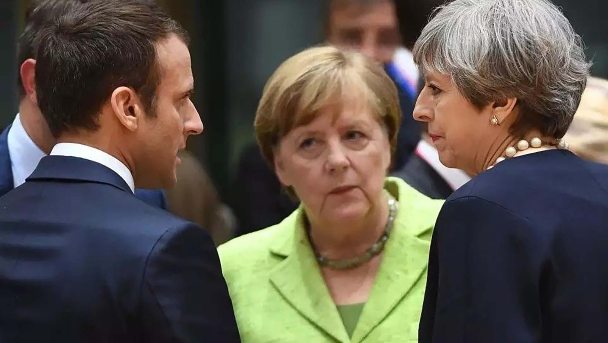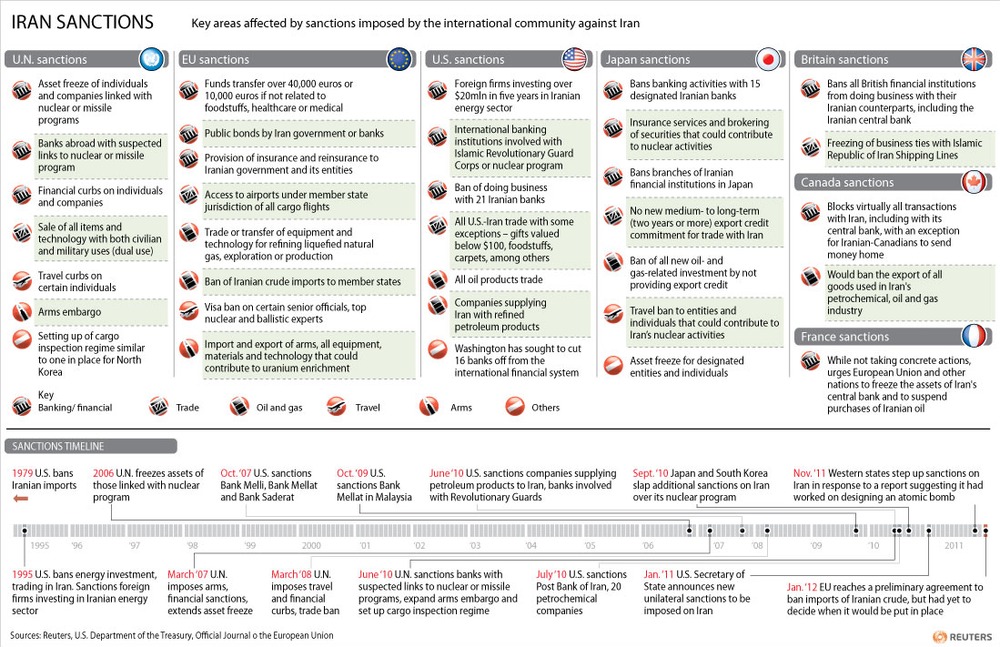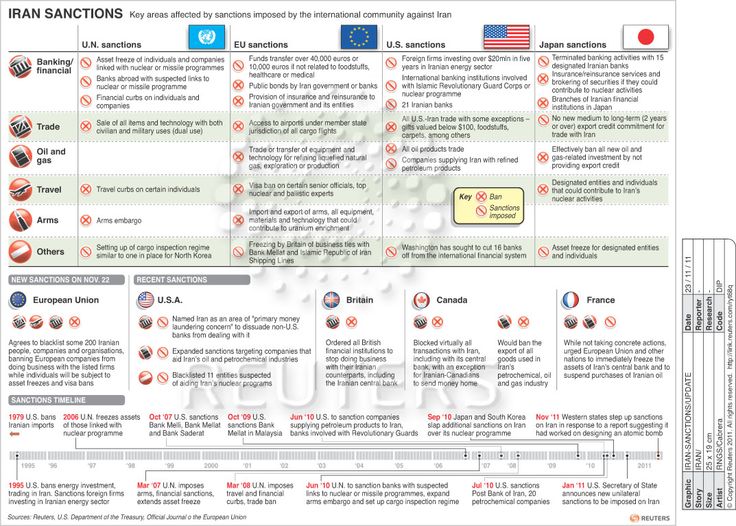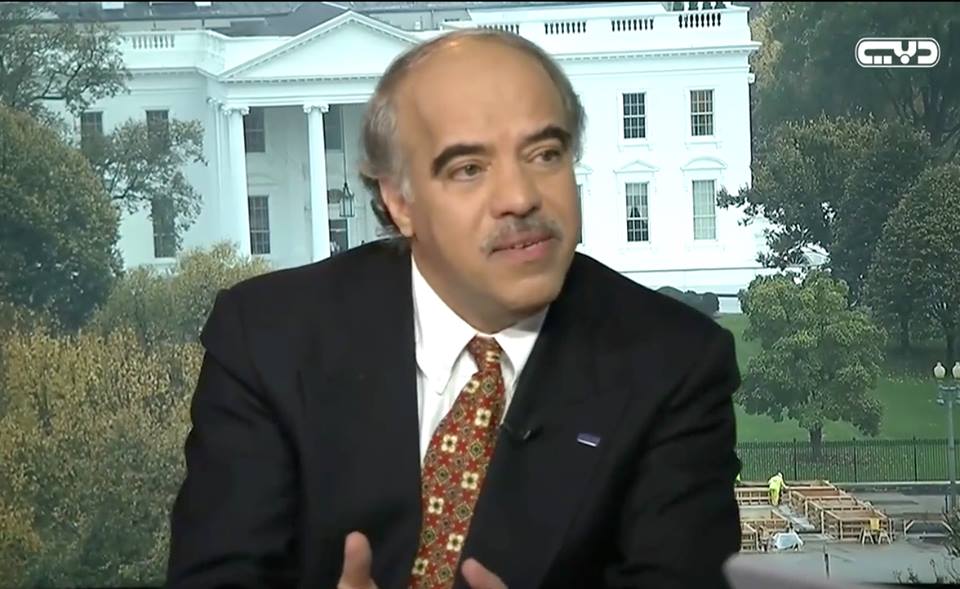
U.S. President Donald Trump decided to make his announcement of exiting the Nuclear Deal with Iran, also known as the Joint Comprehensive Plan of Action (JCPOA), four days before the highly-anticipated deadline of May 12 on whether to renew the waivers imposed on Iran’s central bank and oil exports. Another basket of sanctions would be up for renewal on July 11 dealing with more than 400 specific Iranian companies, individuals, and business sectors. (1) U.S. Treasury Secretary Steven Mnuchin swiftly announced Washington would impose “additional sanctions”; and expressed confidence that they would still be powerful even if other American allies did not follow suit.
Shortly after Trump’s decision, leaders of France, Germany, and the United Kingdom noted pointedly, in their joint statement, that the United Nations Security Council resolution endorsing the nuclear deal remained the “binding international legal framework for the resolution of the dispute.” (2) Consequently, the future of the Nuclear Deal remains at limbo depending on whether the Iranians and the Europeans can come up with an alternative framework of post-Trump’s sanctions. Caroline Galacteros, a geopolitics and strategic intelligence expert, believes “it’s up to us to decide in the end if we really want to accept this extraterritoriality of U.S. law. That is the big issue in my opinion. It can be a real shift in the balance of power.” (3)
The impact of Trump’s decision calls for some adequate contextualization before addressing its trajectory in legal and economic dimensions. With the Trump administration’s intention of sanctioning European and other foreign companies that invest in Iran, the Trans-Atlantic relations are now on a roller coaster. Countries like France and Germany have been pushed to fire back. French Finance Minister Bruno Le Marie called for a meeting with U.S. Treasury Secretary Steve Mnuchin the same week to discuss any possible compromise to avoid burying the Nuclear Deal. The future of the Trans-Atlantic crisis will depend on the synthesis of two currents of debate: the legality and ethicality of the Deal, supported by five leading nations [France, the United Kingdom, Russia, China, and Germany] and the United Nations, versus the political economy of international relations à la Trumpism. One can foresee two battles across the Atlantic: one legal/ethical at the Security Council with the possibility of U.S. violation of an UN-ratified international accord; and one economic/trade-oriented over the subsequent losses of European firms investing in Iran since 2015.
While delivering his announcement at the White House May 8, Trump focused on three main points at the intersection of security and economics: a) his intention to prevent the Iranian regime, which he deems as “the leading state sponsor of terror”, from “enriching uranium” and “reaching the brink of a nuclear breakout. b) Instituting the “highest level of economic sanction” on Iran and “sanctioning any nation that helps Iran in its quest for nuclear weapons”. c) Considering the billions of dollars to which Iran is entitled as frozen assets as “a great embarrassment to me as a citizen and to all citizens of the United States.” (4) This contestation of delivering the Iranian assets back to Tehran after the rupture of the bilateral relations in 1979 highlights the extent of the businessman-turned-president and how economic nationalism remains at the heart of his government philosophy. According to a 2015 estimate from the U.S. Treasury Department, The total value worldwide of freed Iranian assets was about $56 billion. Washington did deliver about $1.7 billion in cash to Iran including $400 million plus interest that Iran had paid the United States before the Iranian revolution in 1979 for military hardware that was never delivered. (5)
‘Keeping’ the Electoral Promise
Among his 282 electoral promises, Trump has made the U.S. breakaway from the Nuclear Deal one of the two most significant promises made to his right-wing constituency after the recognition of Jerusalem as the capital of Israel. His Iran address at the White House coincided with new road signs, printed in Hebrew, English, and Arabic, being installed in different parts of Jerusalem ushering to the new US embassy building, which would be inaugurated mid-May. Trump eagerly asserted, “Today’s action sends a critical message. The United States no longer makes empty threats. When I make promises, I keep them.” (6) This tone of appeasement vis-à-vis his right-wing and evangelist supporters echoes the very stimulus of his Jerusalem decision back in December 2017. He sought positioning himself above his predecessors, “while previous presidents have made this a major campaign promise, they failed to deliver. Today, I am delivering,” (7) In reference to the Jerusalem Embassy Act, which had been passed by the 104th Congress on October 23, 1995.
Another political stimulus of Trump’s Iran new policy is his determination to be an anti-Obama leader. The Nuclear Deal with Iran, the rapprochement with Cuba, the Paris climate agreement and the Trans-Pacific Partnership (TPP) were signature deals of Obama’s trade and foreign policy. However, they have already been or soon to be axed by Trump’s isolationism and economic nationalism. His decision to exit the Nuclear Deal remains at the heart of his embrace of protectionism and restrictionism.
One of the calamities of Trump’s decision is the limited options left for Iran’s president Hassan Rouhani, who believes the agreement could still survive if the other partners: United Kingdom, France, Russia, China, and Germany defy the White House’s exit from the multi-lateral accord. This scenario could be an overstretch call for moral politics in the overall European calculation of cost and benefit in an attempt to prolong the longevity of the deal. Rouhani’s other strategic choice is to set the motion to restart enrichment of uranium at an industrial level in Iran in a few weeks’ time should the deal collapse completely. Rouhani told his reformist supporters as well as his hard-line detractors, “This is a psychological war; we won’t allow Trump to win. I’m happy that the pesky being has left the [agreement].” (8) One day after Trump’s announcement, President Rouhani told the French President Macron that he believed Europe had “limited opportunity” to preserve the nuclear deal.
Trump: The Economic Policeman of the World?
Another calamity is the European, Russian, and Chinese keen interest in maintaining the nuclear deal. Leaders of France, Germany, and the United Kingdom emphasized their “continuing commitment” to the deal. They also urged Washington to “ensure that the structures of the JCPOA can remain intact, and to avoid taking action which obstructs its full implementation by all other parties to the deal.” (9) French Finance Minister Bruno Le Marie complained that it was “not acceptable” for the United States to play “economic policeman of the planet.” (10) EU High Representative/Vice-President Federica Mogherini was bluntly critical of Trump’s move. She asserted, “The nuclear deal with Iran is the culmination of 12 years of diplomacy. It belongs to the entire international community. It has been working and it is delivering on its goal, which is guaranteeing that Iran doesn’t develop nuclear weapons.”
Inside the United States, several diplomats with nuanced knowledge of the Nuclear Deal process have pointed to what seems to be a blind spot in Trump’s vision. For instance, Ryan Crocker, former U.S. Ambassador who has served in several Republican and Democratic administrations, explains, "We have seen Britain, France, Germany and indeed Iran pledge themselves to keep the agreement going. I think what we've done here is just open the door to what will be a pretty tumultuous period ahead." (11)
However, Trumps’ national security advisor, John Bolton, asserted that “the decision that the president signed today puts sanctions back in place that existed at the time of the deal, puts them in place immediately… No new contracts are permitted.” The U.S. ban on Iran-related transactions implies déjà vu scenario of 1997. As Richard Nephew, the lead sanctions expert for the Obama team that negotiated the Nuclear Deal point out, "It is going to be nightmarish to convince the Europeans to back our sanctions effort now without them actually being supportive of it politically." (12)
The U.S. Treasury issued a factsheet providing a timetable of restoration of sweeping sanctions against global companies trading or investing with Iran. After the 90-day wind down period ends on August 6, 2018, the U.S. government will re-impose the following sanctions that were lifted pursuant to the JCPOA, including sanctions on associated services related to the activities below:
- Sanctions on the purchase or acquisition of U.S. dollar banknotes by the Government of Iran;
- Sanctions on Iran’s trade in gold or precious metals;
- Sanctions on the direct or indirect sale, supply, or transfer to or from Iran of graphite, raw, or semi-finished metals such as aluminum and steel, coal, and software for integrating industrial processes;
- Sanctions on significant transactions related to the purchase or sale of Iranian rials, or the maintenance of significant funds or accounts outside the territory of Iran denominated in the Iranian rial;
- Sanctions on the purchase, subscription to, or facilitation of the issuance of Iranian sovereign debt; and
- Sanctions on Iran’s automotive sector. (13)
 |
| Iran Sanctions (Reuters) |
The Behind-the-Scene Economic War
Trump’s decision represents a double-edge sword: a) to impose “the highest level of economic sanctions” on Iran and b) to prevent European firms from doing business in Iran. Besides the fear of possible manufacturing of Iranian nukes in the future, there is more concern over the economic ramifications of Trump’s decision on European corporations, which have started investing in Iran after the 2015 deal. For instance, Total of France has initiated its explorations of offshore natural gas in the Iran coast. Siemens of Germany has finalized an accord with Tehran to deliver locomotives. Airbus of France was early in Iran, right after the signature of the Nuclear Deal, to remake Iran Air’s aging fleet with more than 100 aircraft, including a dozen super jumbo A380s. European automakers like Daimler and PSA Peugeot Citroën have made plans to sell their vehicles in the Iranian market with about 82 million population. Italian state-owned holding Invitalia completed an €5 billion investment deal with Tehran. In 2017, exports from the European Union to Iran increased by about one-third to 10.8 billion euros, or about $12.8 billion, while Iran ranked 33rd among the EU’s trading partners. (14)
Now, European corporations have a 90-day notice to abrogate their existing contracts before they face immediate sanctions if they ignore the US ban or seek new contracts. Moreover, the White House has opted for unspecified “additional sanctions” to be imposed on Iran. Treasury Secretary Steven Mnuchin has shut the door against Iran’s foreign transactions; “We do not want to let Iran use the U.S. financial markets and financial system and transact in dollars until they agree that not only will they not have a nuclear weapon now, but we’ve put in provisions that they will never have one.” There is evident concern across Europe in particular with the nightmare of being targeted by ‘the American guillotine’ that severely punished firms evading US sanctions in the past, such as a hefty, almost $9 billion fine slapped on France’s largest bank, BNP Paribas, in 2014 for sanctions evasion. (15)
Any pursuit of salvaging the Nuclear Deal will not depend on Tehran’s counter strategy only, but also whether Europe has formulated any plan ‘B’. President Emanuel Macron of France, Chancellor Angela Merkel of Germany, and Prime Minister of Britain Theresa May have failed to convince Trump to honor the multi-lateral deal. Still, Mogherini remains a driving force behind the preservation of the Deal; “As long as Iran continues to implement its nuclear related commitments, as it is doing so far, the European Union will remain committed to the continued full and effective implementation of the nuclear deal. We fully trust the work, competence and autonomy of the International Atomic Energy Agency that has published 10 reports certifying that Iran has fully complied with its commitments.”
Tony Blinken, Deputy Secretary of State in the Obama administration who was involved in the negotiation process of the deal, points out that Europe’s ability to keep the deal alive would largely depend on whether Iran continues to reap economic benefits, even without the United States; “That will be a judgment over time. It depends on how companies react to the new environment and it depends on whether the U.S. tries to sanction companies that trade with Iran.” (16)
Ellie Geranmayeh of the European Council for International Relations believes the European Union threatening to imposing tariffs on US exports “would be justified since the U.S. secondary sanctions (on foreign entities) interfere with European foreign policy, of which the JCPOA is an important element.” (17) In short, the political economy of the Nuclear Deal remains significant in the eyes of several European capitals. As Maja Kocijancic, the EU spokeswoman for foreign affairs, asserted “We are working on plans to protect the interests of European companies.” (18)
This European position may represent a counter wave against Trump’s protectionism and economic nationalism. It remains to be seen whether Chancellor Merkel and President Macron, who seem to be the last standing defenders of liberal democracy and free trade, will give in to the emerging trend of economic nationalism across the Atlantic, or may devise a new formula to protect their Iran-related transactions and investments.
Caroline Galacteros, a geopolitics and strategic intelligence expert, believes the U.S. pullout could present the EU with “a big opportunity” to come up with a unified response to a system that has long rankled European powers. There could be a silver lining in the whole mess for European capitals to maneuver their membership of the Nuclear Deal outside the creeping cross-the-border jurisdiction, or the extraterritoriality, of U.S. law. As Galacteros argues, “If Europe sticks to the deal, and the Iranians are cautious and won’t hit back – because that’s what Washington is probably expecting from them – then we have Europe and Iran sticking to the deal, as well as Russia and then China… It all transforms the balance of power.” (19)
 |
| Iran world sanctions (Reuters) |
Conclusion: The Exemption Option
The Trans-Atlantic alliance has come to a decisive intersection in the politics of preventing a nuclear Iran, whereas Europeans are not receptive of Trump’s threats of sanctions against their multi-billion contracts with Tehran. Some observers has argued that Trump’s decision leaves European leaders face only an invidious choice: succumb to Trump’s leadership even though they say it risks turmoil in the Middle East, or challenge their closest ally on probably the biggest foreign policy decision of his presidency. (20)
However, there is a third possible scenario. The upcoming meeting between French Finance Minister Le Marie and U.S. Treasury Secretary Mnuchin remains significant in exploring an alternative to the Trans-Atlantic rift. It is most likely that France, and other members of the European Union, will play the card of counter sanctions against US firms, as a new possible legislation to come out of Brussels. This probability reminds market watchers of how Europe reacted to the treat of the Clinton administration, in 1998, to impose sanctions against European companies working then in Iran. As one analyst put it, “History is not on Trump's side. The last time America and Europe went head-to-head over Iranian sanctions, Europe pushed back and the United States was forced to back down.” [21]
Before the outcome of the Le Marie-Mnuchin meeting unfolds, there is some room for maneuvering the extent of the ban on doing business with Iran. One can argue for a possible option: to grant European companies and investment a waiver from U.S. sanctions. This formula will save face for Trump and protect European interests as well. Furthermore, Trump’s sense of transactionalism and devotion to economic nationalism is not principled or represents an ideological stance. After a few months, he may consider a new point of entry into Iran’s potential investment asset and having a piece of the pie. He never swallowed the fact that European Airbus, not American Boeing, got the lion’s share in the remaking of Iran’s fleet. After all, one should make a distinction between the politics of hard-line Trump and the pragmatism of business-minded Trump!
1. Josh Lederman and Matthew Lee, “Complex choices await world if Trump exits Iran nuclear deal”, AP May 4, 2018 https://www.washingtonpost.com/world/national-security/complex-choices-await-world-if-trump-exits-iran-nuclear-deal/2018/05/04/e00d4d3e-4fe3-11e8-85c19326c4511033_story.html?noredirect=on&utm_term=.05876b3349cf
2. Mark Landlermay, “Trump Withdraws U.S. From ‘One-Sided’ Iran Nuclear Deal,” The New York Times, May 8, 2018 https://www.nytimes.com/2018/05/08/world/middleeast/trump-iran-nuclear-deal.html
3. Leela Jacinto and Sébastian Seibt, “Trump’s Iran deal exit forces EU to confront US ‘economic policeman of the world’:, France 24, May 10, 2018 http://www.france24.com/en/20180509-iran-nuclear-eu-us-sanctions-europe…
4. The White House, “Full Transcript of Trump’s Speech on the Iran Nuclear Deal”, The New York Times, May 8, 2918 https://www.nytimes.com/2018/05/08/us/politics/trump-speech-iran-deal.html?action=click&module=Intentional&pgtype=Article
5. Jon Greenberg, John Kruzel, Amy Sherman, ”Trump withdraws U.S. from the Iran nuclear deal. Here’s what you need to know,” POLITIfact, May 8, 2018, http://www.politifact.com/truth-o-meter/article/2018/may/08/trump-withd…
6. The White House, “Full Transcript of Trump’s Speech on the Iran Nuclear Deal”, The New York Times, May 8, 2918 https://www.nytimes.com/2018/05/08/us/politics/trump-speech-iran-deal.h…
7. Peter Beaumont, “Trump's recognition of Jerusalem as Israel capital sparks West Bank clashes”, the Guardian, December 7, 2017 https://www.theguardian.com/world/2017/dec/07/jerusalem-un-security-council-us-recognition-jerusalem-donald-trump-israel-capital
8. Julian Borger, Saeed K. Dehghan and Oliver Holmes, ‘Iran deal: Trump breaks with European allies over 'horrible, one-sided' nuclear agreement”, The Guardian, May 9 https://www.theguardian.com/world/2018/may/08/iran-deal-trump-withdraw-us-latest-news-nuclear-agreement
9. Julian Borger, Saeed K. Dehghan and Oliver Holmes, ‘Iran deal: Trump breaks with European allies over 'horrible, one-sided' nuclear agreement”, The Guardian, May 9 https://www.theguardian.com/world/2018/may/08/iran-deal-trump-withdraw-us-latest-news-nuclear-agreement
10. Leela Jacinto and Sébastian Seibt, “Trump’s Iran deal exit forces EU to confront US ‘economic policeman of the world’:, France 24, May 10, 2018 http://www.france24.com/en/20180509-iran-nuclear-eu-us-sanctions-european-firms
11. Tom DiChristopher, “Trump's Iran nuclear deal exit may spark a sanctions battle with Europe that Uncle Sam already lost once”, CNBC, May 10, 2018 https://www.cnbc.com/2018/05/09/trumps-iran-nuclear-deal-pullout-may-reopen-sanctions-war-with-europe.html
12. Tom DiChristopher, “Trump's Iran nuclear deal exit may spark a sanctions battle with Europe that Uncle Sam already lost once”, CNBC, May 10, 2018 https://www.cnbc.com/2018/05/09/trumps-iran-nuclear-deal-pullout-may-reopen-sanctions-war-with-europe.html
13. US Treasury, “Frequently Asked Questions Regarding the Re-Imposition of Sanctions Pursuant to the May 8, 2018 National Security Presidential Memorandum Relating to the Joint Comprehensive Plan of Action (JCPOA)” May 8, 2018 https://www.treasury.gov/resourcecenter/sanctions/Programs/Documents/jcpoa_winddown_faqs.pdf
14. Jack Ewing and Stanley Reedmay, “More European Companies Rushed to Invest in Iran. What Now?”, The New York Times, May 9, 2018 https://www.nytimes.com/2018/05/09/business/iran-nuclear-trump-business-europe.html
15. Leela Jacinto and Sébastian Seibt, “Trump’s Iran deal exit forces EU to confront US ‘economic policeman of the world’:, France 24, May 10, 2018 http://www.france24.com/en/20180509-iran-nuclear-eu-us-sanctions-european-firms
16. Patrick Wintour, “Europe's clash with Trump over Iran nuclear deal is a durability test”, The Guardian, May 9, 2018 https://www.theguardian.com/world/2018/may/09/europes-clash-with-trump-over-iran-nuclear-deal-is-a-durability-test
17. Leela Jacinto and Sébastian Seibt, “Trump’s Iran deal exit forces EU to confront US ‘economic policeman of the world’:, France 24, May 10, 2018 http://www.france24.com/en/20180509-iran-nuclear-eu-us-sanctions-european-firms
18. Patrick Wintour, “Europe's clash with Trump over Iran nuclear deal is a durability test”, The Guardian, May 9, 2018 https://www.theguardian.com/world/2018/may/09/europes-clash-with-trump-over-iran-nuclear-deal-is-a-durability-test
19. US Treasury, “Frequently Asked Questions Regarding the Re-Imposition of Sanctions Pursuant to the May 8, 2018 National Security Presidential Memorandum Relating to the Joint Comprehensive Plan of Action (JCPOA)” May 8, 2018 https://www.treasury.gov/resource-center/sanctions/Programs/Documents/jcpoa_winddown_faqs.pdf
20. Patrick Wintour, “Europe's clash with Trump over Iran nuclear deal is a durability test”, The Guardian, May 9, 2018 https://www.theguardian.com/world/2018/may/09/europes-clash-with-trump-over-iran-nuclear-deal-is-a-durability-test
21. Tom DiChristopher, “Trump's Iran nuclear deal exit may spark a sanctions battle with Europe that Uncle Sam already lost once”, CNBC, May 10, 2018 https://www.cnbc.com/2018/05/09/trumps-iran-nuclear-deal-pullout-may-reopen-sanctions-war-with-europe.htm
